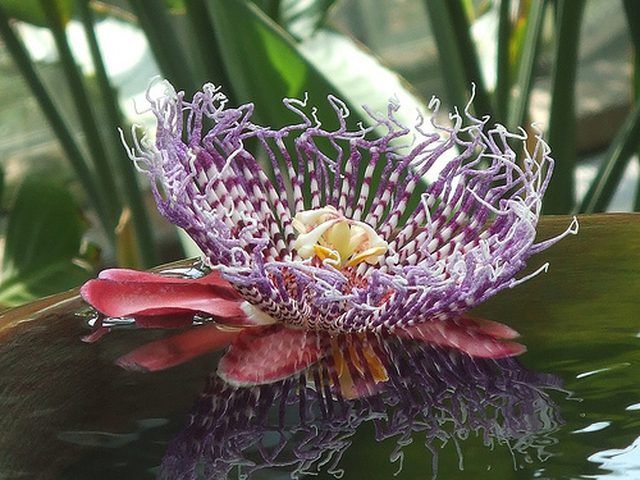Bulbs
Flower Basics
Flower Beds & Specialty Gardens
Flower Garden
Garden Furniture
Garden Gnomes
Garden Seeds
Garden Sheds
Garden Statues
Garden Tools & Supplies
Gardening Basics
Green & Organic
Groundcovers & Vines
Growing Annuals
Growing Basil
Growing Beans
Growing Berries
Growing Blueberries
Growing Cactus
Growing Corn
Growing Cotton
Growing Edibles
Growing Flowers
Growing Garlic
Growing Grapes
Growing Grass
Growing Herbs
Growing Jasmine
Growing Mint
Growing Mushrooms
Orchids
Growing Peanuts
Growing Perennials
Growing Plants
Growing Rosemary
Growing Roses
Growing Strawberries
Growing Sunflowers
Growing Thyme
Growing Tomatoes
Growing Tulips
Growing Vegetables
Herb Basics
Herb Garden
Indoor Growing
Landscaping Basics
Landscaping Patios
Landscaping Plants
Landscaping Shrubs
Landscaping Trees
Landscaping Walks & Pathways
Lawn Basics
Lawn Maintenance
Lawn Mowers
Lawn Ornaments
Lawn Planting
Lawn Tools
Outdoor Growing
Overall Landscape Planning
Pests, Weeds & Problems
Plant Basics
Rock Garden
Rose Garden
Shrubs
Soil
Specialty Gardens
Trees
Vegetable Garden
Yard Maintenance
What Seeds Grow Best Hydroponically?
What Seeds Grow Best Hydroponically?. Hydroponics is a method of growing plants in a soil-less environment that dates back to the Aztecs, who used rafts covered with soil from the bottom of lakes to plant vegetables They'd then float the rafts in the lakes for growth until harvest, letting the roots hang below the water's surface to soak up water...
Hydroponics is a method of growing plants in a soil-less environment that dates back to the Aztecs, who used rafts covered with soil from the bottom of lakes to plant vegetables They'd then float the rafts in the lakes for growth until harvest, letting the roots hang below the water's surface to soak up water and nutrients. There are several ways to use hydroponics to grow vegetables, flowers and fruits, and several mediums in which to grow plants hydroponically.

Choosing the Right Seeds
The type of seed grown in a hydroponic system isn't as important as the age of the seed. All seeds can be germinated hydroponically, but other than corn seeds, unless the seed is newer than three years, it will propagate slowly and become a smaller plant. Using quality seeds that are less than a year old is best. The way the seeds are prepared for planting is more important than the type of seed chosen to grow. When preparing a seed to plant, soak the seed overnight in water. Adding a few drops of beneficial enzymes and other nutrients to the water will enhance the seed's propagation and the health of the new plant. Soaking them overnight ensures they won't take in light, which hinders the growth of the new seedling.
Storing Seeds
The way seeds are stored is also very important in their germination. Seeds should be stored in airtight and light-tight containers, in a cold environment. A refrigerator is the best place to store seeds for use in the next growing season. While some people do freeze their seeds, it is not recommended, because freezing then thawing causes expansion and contraction of the seedpods, making them less healthy for germination.
Determining What to Grow
The best way to determine what to grow in your hydroponic system is by planting like-needs plants together. Leafy plants and herbs such as basil, lettuce and spinach grow well together and use similar nutrients. Basil, if flowering is inhibited, can be harvested several times before new plants are needed. Leafy types of lettuce grow better than head types in a hydroponic system. Spinach is slower to germinate than lettuce or basil, so it might appear not to be growing when the others are flourishing, but it will catch up and produce great results.
Other Like Plants
Broccoli, cauliflower and cabbage all like cooler growing temperatures and make great growing companions. They are easily grown in a hydroponics system providing you have a place to keep the plants at the proper temperature for propagation and growth. Beans and peas grow well together in an ebb-and-flow-type system using perlite or expanded clay as a growing medium, but they require support trellises for the vine types. Root vegetables do well in hydroponic systems as long as they have enough room for the full vegetable to form. Radishes will be ready to harvest in 40 to 60 days, while carrots may not be ready for three months, so keep this in mind when planting.
Tomatoes
Cucumbers, tomatoes and peppers grow rapidly in hydroponic systems because a lot of water is needed to propagate these types of plants. In fact, tomatoes are the most popular commercial hydroponic crop. Continuously picking the fruit grown will ensure the plants produce their maximum yield. The major drawback to growing peppers hydroponically is that they take longer to grow than other vegetables. These types of plants grow well in an ebb-and-flow system.
Strawberries and Other Fruits
Strawberries and other small fruits can be grown hydroponically, but they are not usually started from seeds in these systems, but from shoots. The shoots are planted into the growing medium and can later be planted in your garden for continued growing, but you need to assure they are free of the organic debris used to grow hydroponically, so they prosper and won't go into shock upon replanting.